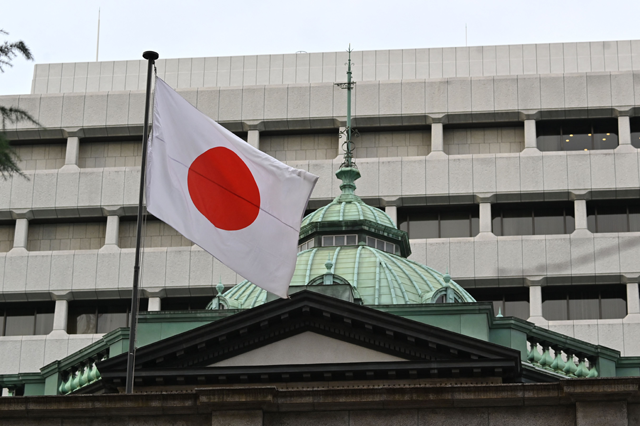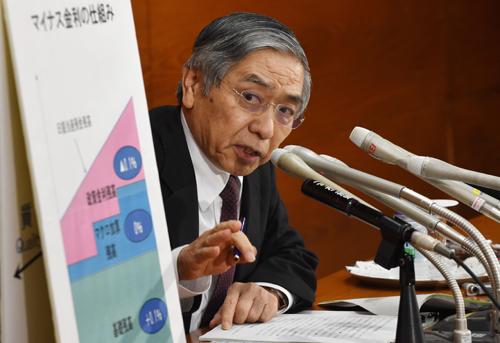You are here
Weak yen pressures Bank of Japan rate decision
By AFP - Apr 28,2024 - Last updated at Apr 28,2024
TOKYO — The Bank of Japan (BoJ) was widely expected to keep its ultra-low interest rates unchanged recently but analysts say the tumbling yen is putting pressure on officials to act.
With the currency at three-decade lows against the dollar, speculation has grown that authorities could intervene in forex markets to provide support for the first time since 2022.
A weaker yen pushes up the price of imported goods, so the BoJ could lift its inflation forecasts and potentially move away from its ultra-loose policies more quickly, according to analysts.
On Friday morning, the dollar bought 155.60 yen, having touched 155.75 the previous day — its highest since 1990.
If the falling yen creates "an impact too big to be ignored, it means that in some cases a change in monetary policy will become possible", BoJ Governor Kazuo Ueda said last week.
Finance Minister Shunichi Suzuki warned Friday the government was "concerned" about the negative aspects of the weak yen, repeating that authorities will take "all possible measures" if necessary, Japanese media said.
The central bank ditched its negative interest rate policy in March as it announced its first hike in 17 years, giving a brief lift to the yen.
But officials also suggested there were no more increases on the immediate horizon, tempering the yen's gains.
The currency is among other global units that have fallen against the dollar as a series of above-forecast US inflation data dim hopes for Federal Reserve (Fed) rate cuts.
This leaves a big differential between the policies of the central banks as the Fed holds rates at two-decade highs while the BoJ continues with its extreme easing.
So even if the BoJ holds steady, any tweaks to its easing programme and the tone of comments from Ueda will be scrutinised for hints on future moves.
Ueda might want to take a long-term view, but "he may not be able to avoid the forex factor", said Hideo Kumano, chief economist of Dai-ichi Life Research Institute.
"Amidst the ongoing yen depreciation against the US dollar, the pressure intensifies on Japanese policymakers to translate their verbal assurances into concrete measures," said Luca Santos, currency analyst ACY Securities.
The BoJ has spent vast amounts on bonds and other assets to pump liquidity into the Japanese economy, targeting inflation of two per cent that policymakers hoped would fuel growth.
In March, inflation stood at 2.6 per cent.
Jiji Press cited sources Friday as saying BoJ policymakers would discuss ways to reduce the bank's purchases of Japanese government bonds.
The institution currently holds 592 trillion yen ($3.8 trillion) in JGBs, an amount equivalent to the size of the country's gross domestic product in 2023.
Related Articles
PARIS — Stock markets jumped on Friday after US Federal Reserve chief Jerome Powell made clear that the central bank was ready to cut intere
TOKYO — The Bank of Japan (BOJ) on Tuesday maintained its long-standing, ultra-loose monetary policy and offered no guidance on its plans in
TOKYO — The Bank of Japan (BoJ) unexpectedly cut a benchmark interest rate below zero on Friday, stunning investors with another bold move t



















